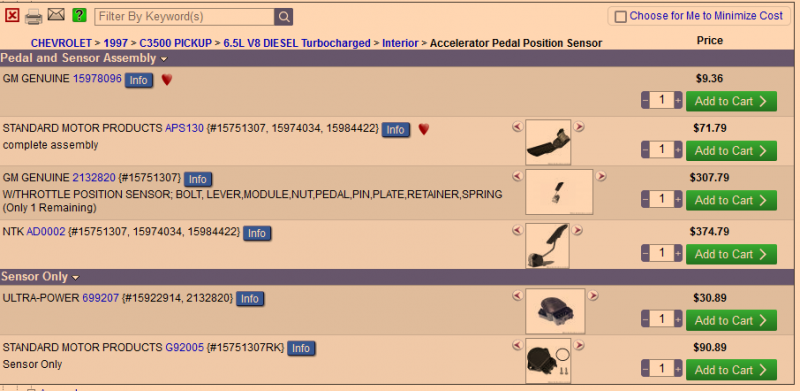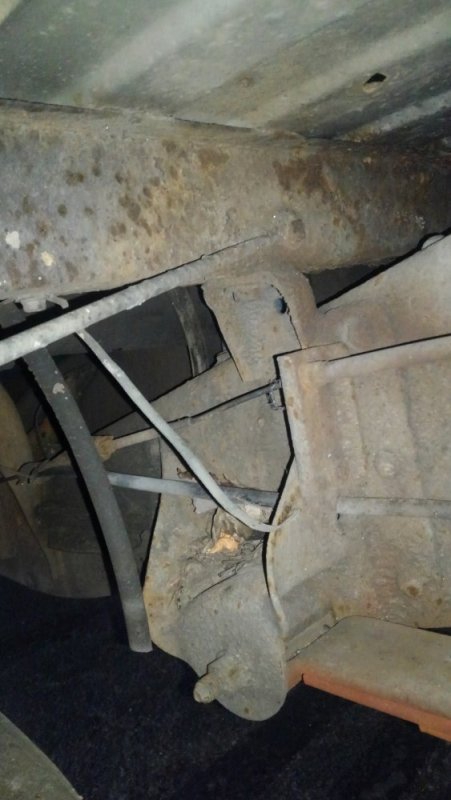dbrannon79
I'm getting there!
I did look to see if they sold it separately on RA. they only show the complete pedal assembly with sensor for $307. but they do show the sensor alone with other brands. I have been told that this sensor rarely fails, maybe worth scavenging a pick a part junk yard for the whole thing to try out vs spending that kind of cash for the GM part. chances the junk yard part will be working fine are good
Plus it looks like this sensor is the same for 94-99 with a DS4 IP

Plus it looks like this sensor is the same for 94-99 with a DS4 IP


